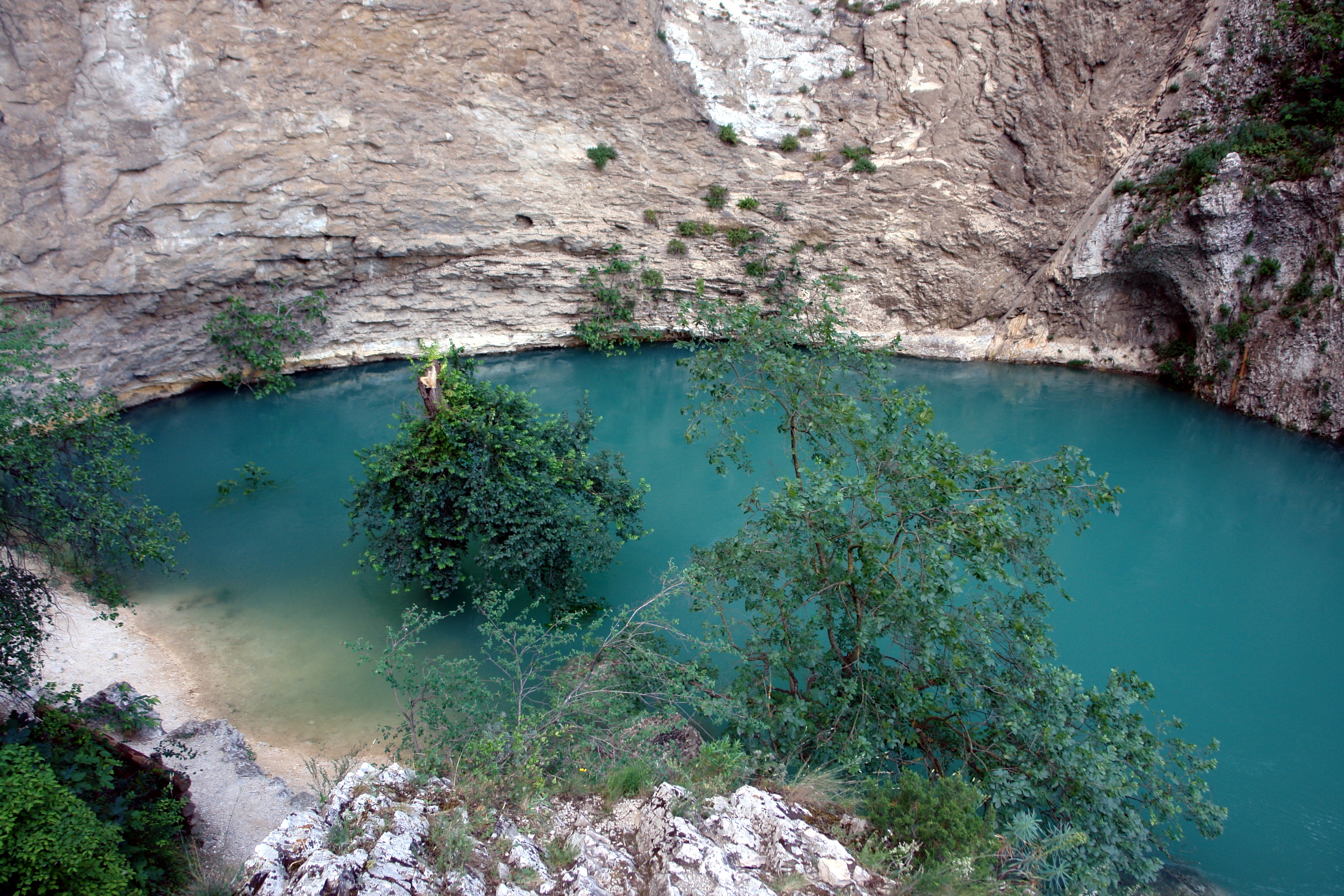|
Joseph-Alexandre Auzias-Turenne
Joseph-Alexandre Auzias-Turenne, born on March 1, 1812, in Pertuis (Vaucluse) and died on May 27, 1870, in Paris, was a French doctor. Biography He advocated the preventive inoculation of syphilis, on the model of the variolation, and dedicated his life to this idea that posterity has not ratified. In 1859, with Camille-Melchior Gibert, he took part in a controversial experiment in which human patients were deliberately infected with syphilis in order to prove the infectious nature of secondary syphilis. He supported a theory of immunization as depletion, in the subject, of a substance necessary for the infectious agent. This theory, although adopted by Louis Pasteur Louis Pasteur (, ; 27 December 1822 – 28 September 1895) was a French chemist and microbiologist renowned for his discoveries of the principles of vaccination, microbial fermentation and pasteurization, the latter of which was named after ..., has not been ratified by posterity either. He advocated the ... [...More Info...] [...Related Items...] OR: [Wikipedia] [Google] [Baidu] |
Pertuis
Pertuis (; oc, Pertús) is a commune in the Vaucluse department in the Provence-Alpes-Côte d'Azur region in southeastern France. Located south of the Luberon, this town is also near Aix-en-Provence, a famous town. Pertuis has existed since at least 981, while a castle was first built in the 12th century. Population Pertuis has registered significant population growth since the 1960s, with a threefold increase during this period. International relations Pertuis is twinned with: * Alton, Hampshire, England * Herborn, Hesse, Germany * Este, Veneto, Italy * Utiel, Spain Notable people from Pertuis * Henry de Saint Didier (16th century), fencer and author of the first French book on fencing (1573) * Victor de Riqueti, marquis de Mirabeau (1715–1789), economist * Michèle Torr (1947-), singer * Cyril Rool (1975-), footballer * Malick Bowens (1941-2017), actor Gallery File:Église Saint-Nicolas de Pertuis, Vaucluse, France - 20090509.jpg, Église Saint-Nicolas See a ... [...More Info...] [...Related Items...] OR: [Wikipedia] [Google] [Baidu] |
Vaucluse
Vaucluse (; oc, Vauclusa, label=Provençal or ) is a department in the southeastern French region of Provence-Alpes-Côte d'Azur. It had a population of 561,469 as of 2019.Populations légales 2019: 84 Vaucluse INSEE The department's prefecture is . It is named after a spring, the Fontaine de Vaucluse, one of the largest karst springs in the world. The nam ... [...More Info...] [...Related Items...] OR: [Wikipedia] [Google] [Baidu] |
Paris
Paris () is the capital and most populous city of France, with an estimated population of 2,165,423 residents in 2019 in an area of more than 105 km² (41 sq mi), making it the 30th most densely populated city in the world in 2020. Since the 17th century, Paris has been one of the world's major centres of finance, diplomacy, commerce, fashion, gastronomy, and science. For its leading role in the arts and sciences, as well as its very early system of street lighting, in the 19th century it became known as "the City of Light". Like London, prior to the Second World War, it was also sometimes called the capital of the world. The City of Paris is the centre of the Île-de-France region, or Paris Region, with an estimated population of 12,262,544 in 2019, or about 19% of the population of France, making the region France's primate city. The Paris Region had a GDP of €739 billion ($743 billion) in 2019, which is the highest in Europe. According to the Economis ... [...More Info...] [...Related Items...] OR: [Wikipedia] [Google] [Baidu] |
Variolation
Variolation was the method of inoculation first used to immunize individuals against smallpox (''Variola'') with material taken from a patient or a recently variolated individual, in the hope that a mild, but protective, infection would result. Variolation is no longer used today. It was replaced by the smallpox vaccine, a safer alternative. This in turn led to the development of the many vaccines now available against other diseases. The procedure was most commonly carried out by inserting/rubbing powdered smallpox scabs or fluid from pustules into superficial scratches made in the skin. The virus was normally spread through the air, infecting first the mouth, nose, or respiratory tract, before spreading throughout the body via the lymphatic system. In contrast, infection of the skin usually led to a milder, localized infection, but, crucially, still induced immunity to the virus. The patient would develop pustules like those caused by naturally acquired smallpox. Eventually, aft ... [...More Info...] [...Related Items...] OR: [Wikipedia] [Google] [Baidu] |
Camille-Melchior Gibert
Camille-Melchior Gibert (18 September 1797 – 30 July 1866) was a French dermatologist who was a native of Paris. He studied medicine in Paris, where in 1818–19 he served as an interne to Laurent-Théodore Biett at the Hôpital Saint-Louis. In 1822 he received his medical doctorate and in 1826 he obtained his agrégation. From 1836 he was a physician at the Hôpital Lourcine, and from 1840 to 1863, was associated with the Hôpital Saint-Louis. In 1847 he became a member of the Académie de médecine. He died during the 1866 Paris cholera epidemic. Gibert contributed to the Medical section of the Encyclopédie Méthodique. Gibert is remembered for providing the first accurate description of a papulosquamous skin disorder that he named pityriasis rosea. Historically, this condition was also referred to as "Gibert disease". His best written work on skin diseases was a book called "''Traité pratique des maladies spéciales de la peau''" (second edition, 1840). In 1859, with ... [...More Info...] [...Related Items...] OR: [Wikipedia] [Google] [Baidu] |
Syphilis
Syphilis () is a sexually transmitted infection caused by the bacterium '' Treponema pallidum'' subspecies ''pallidum''. The signs and symptoms of syphilis vary depending in which of the four stages it presents (primary, secondary, latent, and tertiary). The primary stage classically presents with a single chancre (a firm, painless, non-itchy skin ulceration usually between 1 cm and 2 cm in diameter) though there may be multiple sores. In secondary syphilis, a diffuse rash occurs, which frequently involves the palms of the hands and soles of the feet. There may also be sores in the mouth or vagina. In latent syphilis, which can last for years, there are few or no symptoms. In tertiary syphilis, there are gummas (soft, non-cancerous growths), neurological problems, or heart symptoms. Syphilis has been known as " the great imitator" as it may cause symptoms similar to many other diseases. Syphilis is most commonly spread through sexual activity. It may also be tra ... [...More Info...] [...Related Items...] OR: [Wikipedia] [Google] [Baidu] |
Louis Pasteur
Louis Pasteur (, ; 27 December 1822 – 28 September 1895) was a French chemist and microbiologist renowned for his discoveries of the principles of vaccination, microbial fermentation and pasteurization, the latter of which was named after him. His research in chemistry led to remarkable breakthroughs in the understanding of the causes and preventions of diseases, which laid down the foundations of hygiene, public health and much of modern medicine. His works are credited to saving millions of lives through the developments of vaccines for rabies and anthrax. He is regarded as one of the founders of modern bacteriology and has been honored as the "father of bacteriology" and the "father of microbiology" (together with Robert Koch; the latter epithet also attributed to Antonie van Leeuwenhoek). Pasteur was responsible for disproving the doctrine of spontaneous generation. Under the auspices of the French Academy of Sciences, his experiment demonstrated that in sterilized ... [...More Info...] [...Related Items...] OR: [Wikipedia] [Google] [Baidu] |
Microbial Antagonism
In phytopathology, antagonism refers to the action of any organism that suppresses or interferes with the normal growth and activity of a plant pathogen, such as the main parts of bacteria or fungi. These organisms can be used for pest control and are referred to as biological control agents. They may be predators, parasites, parasitoids, or pathogens that attack a harmful insect, weed or plant disease or any other organism in its vicinity. The inhibitory substance is highly specific in its action, affecting only a specific species. Many soil microorganisms are antagonistic. They secrete a potent enzyme which destroys other cells by digesting their cell walls and degrade the cellular material as well as released protoplasmic material serves as a nutrient for the inhibitor organism, for example ''Aspergillus'' has an antagonistic effect on ''Penicillium'' and ''Cladosporium''. ''Trichoderma'' has an effect on actinomycetes. ''Pseudomonas ''Pseudomonas'' is a genus of Gram-negat ... [...More Info...] [...Related Items...] OR: [Wikipedia] [Google] [Baidu] |
19th-century French Physicians
The 19th (nineteenth) century began on 1 January 1801 ( MDCCCI), and ended on 31 December 1900 ( MCM). The 19th century was the ninth century of the 2nd millennium. The 19th century was characterized by vast social upheaval. Slavery was abolished in much of Europe and the Americas. The First Industrial Revolution, though it began in the late 18th century, expanding beyond its British homeland for the first time during this century, particularly remaking the economies and societies of the Low Countries, the Rhineland, Northern Italy, and the Northeastern United States. A few decades later, the Second Industrial Revolution led to ever more massive urbanization and much higher levels of productivity, profit, and prosperity, a pattern that continued into the 20th century. The Islamic gunpowder empires fell into decline and European imperialism brought much of South Asia, Southeast Asia, and almost all of Africa under colonial rule. It was also marked by the collapse of the la ... [...More Info...] [...Related Items...] OR: [Wikipedia] [Google] [Baidu] |
1812 Births
Year 181 ( CLXXXI) was a common year starting on Sunday (link will display the full calendar) of the Julian calendar. At the time, it was known as the Year of the Consulship of Aurelius and Burrus (or, less frequently, year 934 ''Ab urbe condita''). The denomination 181 for this year has been used since the early medieval period, when the Anno Domini calendar era became the prevalent method in Europe for naming years. Events By place Roman Empire * Imperator Lucius Aurelius Commodus and Lucius Antistius Burrus become Roman Consuls. * The Antonine Wall is overrun by the Picts in Britannia (approximate date). Oceania * The volcano associated with Lake Taupō in New Zealand erupts, one of the largest on Earth in the last 5,000 years. The effects of this eruption are seen as far away as Rome and China. Births * April 2 – Xian of Han, Chinese emperor (d. 234) * Zhuge Liang, Chinese chancellor and regent (d. 234) Deaths * Aelius Aristides, Greek orator and w ... [...More Info...] [...Related Items...] OR: [Wikipedia] [Google] [Baidu] |
1870 Deaths
Year 187 ( CLXXXVII) was a common year starting on Sunday (link will display the full calendar) of the Julian calendar. At the time, it was known as the Year of the Consulship of Quintius and Aelianus (or, less frequently, year 940 ''Ab urbe condita''). The denomination 187 for this year has been used since the early medieval period, when the Anno Domini calendar era became the prevalent method in Europe for naming years. Events By place Roman Empire * Septimius Severus marries Julia Domna (age 17), a Syrian princess, at Lugdunum (modern-day Lyon). She is the youngest daughter of high-priest Julius Bassianus – a descendant of the Royal House of Emesa. Her elder sister is Julia Maesa. * Clodius Albinus defeats the Chatti, a highly organized German tribe that controlled the area that includes the Black Forest. By topic Religion * Olympianus succeeds Pertinax as bishop of Byzantium (until 198). Births * Cao Pi, Chinese emperor of the Cao Wei state (d. 226) ... [...More Info...] [...Related Items...] OR: [Wikipedia] [Google] [Baidu] |




